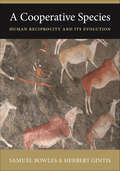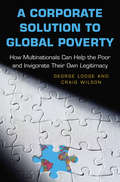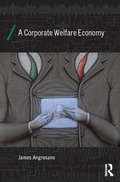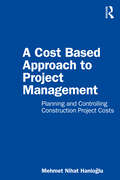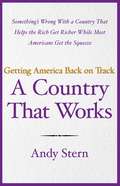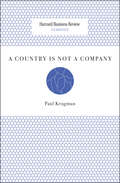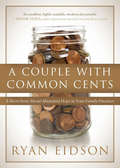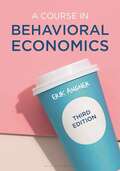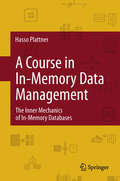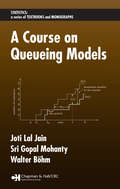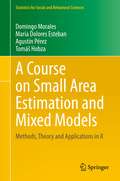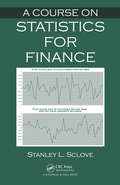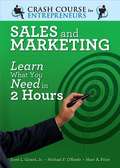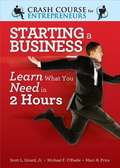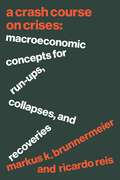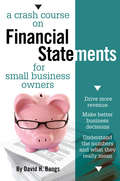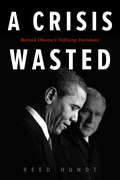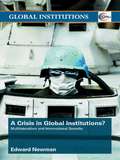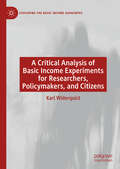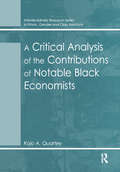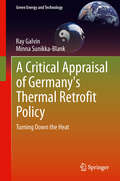- Table View
- List View
A Conversation with Ellen J. Kullman, Chairman & CEO of DuPont, 2009-2015
by Lynn S. Paine Will HurwitzEllen J. Kullman, the retired Chairman and CEO of DuPont, describes how she guided the storied science and technology company through a contentious proxy battle with activist investor Trian Partners, which acquired DuPont shares in 2013 and sought to break up the company. Trian's pursuit of board seats led to a 2015 shareholder vote, which DuPont won under Kullman's leadership. In a sweeping interview with Professor Lynn S. Paine, Kullman describes lessons from her experiences navigating the proxy contest that captured national attention as well as about working with your board, setting company strategy, leading a large corporation, evaluating time frames for shareholder returns, measuring stakeholder performance, assessing shareholder engagement, considering joining a new board and boardroom dynamics, and understanding how boards have changed over the years.
A Cooperative Species: Human Reciprocity and Its Evolution
by Samuel Bowles Herbert GintisA fascinating look at the evolutionary origins of cooperationWhy do humans, uniquely among animals, cooperate in large numbers to advance projects for the common good? Contrary to the conventional wisdom in biology and economics, this generous and civic-minded behavior is widespread and cannot be explained simply by far-sighted self-interest or a desire to help close genealogical kin.In A Cooperative Species, Samuel Bowles and Herbert Gintis—pioneers in the new experimental and evolutionary science of human behavior—show that the central issue is not why selfish people act generously, but instead how genetic and cultural evolution has produced a species in which substantial numbers make sacrifices to uphold ethical norms and to help even total strangers.The authors describe how, for thousands of generations, cooperation with fellow group members has been essential to survival. Groups that created institutions to protect the civic-minded from exploitation by the selfish flourished and prevailed in conflicts with less cooperative groups. Key to this process was the evolution of social emotions such as shame and guilt, and our capacity to internalize social norms so that acting ethically became a personal goal rather than simply a prudent way to avoid punishment.Using experimental, archaeological, genetic, and ethnographic data to calibrate models of the coevolution of genes and culture as well as prehistoric warfare and other forms of group competition, A Cooperative Species provides a compelling and novel account of how humans came to be moral and cooperative.
A Corporate Solution to Global Poverty: How Multinationals Can Help the Poor and Invigorate Their Own Legitimacy
by Craig Wilson George LodgeWorld leaders have given the reduction of global poverty top priority. And yet it persists. Indeed, in many countries whose governments lack either the desire or the ability to act, poverty has worsened. This book, a joint venture of a Harvard professor and an economist with the International Finance Corporation, argues that the solution lies in the creation of a new institution, the World Development Corporation (WDC), a partnership of multinational corporations (MNCs), international development agencies, and nongovernmental organizations (NGOs). In A Corporate Solution to Global Poverty, George Lodge and Craig Wilson assert that MNCs have the critical combination of capabilities required to build investment, grow economies, and create jobs in poor countries, and thus to reduce poverty. Furthermore, they can do so profitably and thus sustainably. But they lack legitimacy and risk can be high, and so a collective approach is better than one in which an individual company proceeds alone. Thus a UN-sponsored WDC, owned and managed by a dozen or so MNCs with NGO support, will make a marked difference. At a time when big business has been demonized for destroying the environment, enjoying one-sided benefits from globalization, and deceiving investors, the book argues, MNCs have much to gain from becoming more effective in reducing global poverty. This is not a call for philanthropy. Lodge and Wilson believe that corporate support for the World Development Corporation will benefit not only the world's poor but also company shareholders as a result of improved MNC legitimacy and stronger markets and profitability.
A Corporate Welfare Economy (Economics as Social Theory)
by James AngresanoAlthough political rhetoric and public perception continue to assume that the United States is the very definition of a free market economy, a different system entirely has in actuality come to prominence over the past half century. This Corporate Welfare Economy (CWE) has come about as government come increasingly under the influence of corporate interests and lobbyists, with supposedly equalising factors such as regulation skewed in order to suit the interests of the privileged while an overwhelming majority of US citizens have experienced a decline in their standard of living. James Angresano examines the characteristics of this mode of capitalism, both from the theoretical point of view but also with key reference to the different sectors of the economy – trade, manufacturing, industry and defense among them.
A Cost Based Approach to Project Management: Planning and Controlling Construction Project Costs
by Mehmet Nihat HaniogluA Cost Based Approach to Project Management: Planning and Controlling Construction Project Costs introduces early-career architects, construction managers, civil engineers, and facility managers to the essentials of delivering projects on-time and at cost. Drawing on the author’s decades of experience managing marquee building and infrastructure projects around the world, this primer offers busy professionals a crash course in budgeting, cost estimating, scheduling, and cost control. Chapters break down the details of cost elements, structuring project costs, and integrating budget with schedule, providing novice project managers with the key skills to plan and execute construction projects with confidence and precision. Features: Illustrates the principles of project management and the essentials of cost planning and control with easy-to-understand examples from the construction industry Includes step-by-step details of project planning, cost estimating, and management processes Offers clear, cost-based methods for defining scope, preparing bids, and planning for contingencies, as well as monitoring progress and determining when to take remedial action Contains a user-friendly guide to project management acronyms and terminology Provides sample construction schedules, budgets, and progress report forms An ideal resource for self-study, on-the-job training, or courses in construction, architecture, or civil engineering project management, A Cost Based Approach to Project Management makes a worthy addition to the aspiring project manager’s reference shelf.
A Country That Works
by Andy SternAndy Stern, one of the most visionary leaders in America today, has fought relentlessly to ensure that Americans' hard work is rewarded in today's hypercompetitive, globalized world. As the newsmaking president of the fastest-growing, most dynamic union in America, he has led the charge for modernizing the "house of labor" -- taking unions out of the past and into the twenty-first century. He has spearheaded the campaign against the "Wal-Marting" of jobs and has innovated transformative solutions to the daunting problems facing Americans, from job insecurity to runaway health care costs. In this powerful critique and call-to-arms, he offers a revelatory dissection of the gathering threats to our standard of living -- threats that our politicians have failed utterly to address -- and he puts forth a bold, unassailable plan for making vital reforms. In his eye-opening diagnosis that makes the urgency of the threats vividly clear, Stern shows that Americans are contending with the most disruptive economic upheaval in the world economy since the Industrial Revolution. Yet, in the face of this daunting challenge, the American system simply isn't working well enough for most of us. Stern powerfully portrays how with the pace of globalization relentlessly quickening, the competitive pressures on our jobs and quality of life are heating up even more, especially as housing, health care, and oil prices skyrocket. While CEO salaries soar and business and the wealthy are handed plentiful tax shelters, the incomes of both white-collar and blue-collar workers stagnate, leaving most Americans struggling to pay off ever-escalating debt, instead of saving for retirement. The plain fact is that our system is out of whack, serving the interests of the top sliver of the most wealthy while putting the squeeze on the rest of us. Meanwhile, our politicians irresponsibly sidestep the crucial solutions that we so desperately need in order to make sure Americans can move into the twenty-first century with their futures secure. As Stern so persuasively shows, it is time for bold thinking and creative solutions to overhaul a health care system in crisis; correct a tax system rigged in favor of business and the wealthy; revamp our inadequate retirement system; and make truly innovative improvements in education. He presents a set of course-correction reforms so compelling, simple, and achievable that readers will find themselves enraged that they haven't yet been enacted. Americans have a right to expect our government to work for us. Andy Stern shows how we can get things back on track to make sure it does.
A Country is Not a Company (Harvard Business Review Classics)
by Paul KrugmanNobel-Prize-winning economist Paul Krugman argues that business leaders need to understand the differences between economic policy on the national and international scale and business strategy on the organizational scale. Economists deal with the closed system of a national economy, whereas executives live in the open-system world of business. Moreover, economists know that an economy must be run on the basis of general principles, but businesspeople are forever in search of the particularbrilliant strategy. Krugman's article serves to elucidate the world of economics for businesspeople who are so close to it and yet are continually frustrated by what they see. Since 1922,Harvard Business Review has been a leading source of breakthrough management ideas-many of which still speak to and influence us today. The Harvard Business Review Classics series now offers readers the opportunity to make these seminal pieces a part of your permanent management library. Each highly readable volume contains a groundbreaking idea that continues to shape best practices and inspire countless managers around the world-and will have a direct impact on you today and for years to come.
A Couple With Common Cents: A Short Story About Abundant Hope in Your Family Finances
by Ryan EidsonHow Does a Husband and Wife Come to an Agreement About Money? Tabitha is a young mother of two who struggles with her family's finances every day. She's tried to talk with her husband, Jack, about their money struggles, but he won't listen. A friend of Tabitha's invites her to a weekend women's conference.?How can Tabitha take off work and go to this conference, when she doesn't have the cash to go, and can't miss a day of work because their money is so tight?Find out how she overcomes these problems in "A Couple with Common Cents".
A Course in Behavioral Economics
by Erik AngnerThis textbook looks at decisions – how we make them, and what makes them good or bad. In this bestselling introduction, Erik Angner clearly lays out the theory of behavioral economics and explains the intuitions behind it. The book offers a rich tapestry of examples, exercises, and problems drawn from fields such as economics, management, marketing, political science, and public policy. It shows how to apply the principles of behavioral economics to improve your life and work – and to make the world a better place to boot. No advanced mathematics is required. <p><p>This is an ideal textbook for students coming to behavioral economics from various fields. It can be used on its own in introductory courses, or in combination with other texts at advanced undergraduate and postgraduate levels. It is equally suitable for general readers who have been captivated by popular-science books on behavioral economics and want to know more about this intriguing subject. <p><p>New to this Edition: <p><p>- An updated chapter on behavioral policy and the nudge agenda. <p><p>- Several new sections, for example on the economics of happiness. <p><p>- Updated examples and exercises, with an expanded answer key <p><p>- Refreshed ancillary resources make for a plug and play experience for instructors teaching behavioral economics for the first time.
A Course in Environmental Economics
by Daniel J. Phaneuf Till RequateThis unique graduate textbook offers a compelling narrative of the growing field of environmental economics that integrates theory, policy, and empirical topics. Daniel J. Phaneuf and Till Requate present both traditional and emerging perspectives, incorporating cutting-edge research in a way that allows students to easily identify connections and common themes. Their comprehensive approach gives instructors the flexibility to cover a range of topics, including important issues - such as tax interaction, environmental liability rules, modern treatments of incomplete information, technology adoption and innovation, and international environmental problems - that are not discussed in other graduate-levels texts. Numerous data-based examples and end-of-chapter exercises show students how theoretical and applied research findings are complementary, and will enable them to develop skills and interests in all areas of the field. Additional data sets and exercises can be accessed online, providing ample opportunity for practice.
A Course in Financial Calculus
by Alison EtheridgeThis text is designed for first courses in financial calculus aimed at students with a good background in mathematics. Key concepts such as martingales and change of measure are introduced in the discrete time framework, allowing an accessible account of Brownian motion and stochastic calculus. The Black-Scholes pricing formula is first derived in the simplest financial context. Subsequent chapters are devoted to increasing the financial sophistication of the models and instruments. The final chapter introduces more advanced topics including stock price models with jumps, and stochastic volatility. A large number of exercises and examples illustrate how the methods and concepts can be applied to realistic financial questions.
A Course in In-Memory Data Management: The Inner Mechanics of In-Memory Databases
by Hasso PlattnerRecent achievements in hardware and software development, such as multi-core CPUs and DRAM capacities of multiple terabytes per server, enabled the introduction of a revolutionary technology: in-memory data management. This technology supports the flexible and extremely fast analysis of massive amounts of enterprise data. Professor Hasso Plattner and his research group at the Hasso Plattner Institute in Potsdam, Germany, have been investigating and teaching the corresponding concepts and their adoption in the software industry for years. This book is based on the first online course on the openHPI e-learning platform, which was launched in autumn 2012 with more than 13,000 learners. The book is designed for students of computer science, software engineering, and IT related subjects. However, it addresses business experts, decision makers, software developers, technology experts, and IT analysts alike. Plattner and his group focus on exploring the inner mechanics of a column-oriented dictionary-encoded in-memory database. Covered topics include - amongst others - physical data storage and access, basic database operators, compression mechanisms, and parallel join algorithms. Beyond that, implications for future enterprise applications and their development are discussed. Readers are lead to understand the radical differences and advantages of the new technology over traditional row-oriented disk-based databases.
A Course in Public Economics
by John LeachA Course in Public Economics, first published in 2004, explores the central questions of whether or not markets work, and if not, what is to be done about it. The first part of the textbook, designed for upper-level undergraduates and first-year graduate students, begins with an extended discussion of the two theorems of welfare economics. These theorems show that competitive markets can give rise to socially desirable outcomes, and describe the conditions under which they do so. The second part of the book discusses the kinds of market failure - externalities, public goods, imperfect competition and asymmetric information - that arise when these conditions are not met. The role of the government in resolving market failures is examined. The limits of government action, especially those arising from asymmetric information, are also investigated. A knowledge of intermediate microeconomics and basic calculus is assumed.
A Course on Queueing Models
by Joti Lal Jain Walter Böhm Sri Gopal MohantyThe application of engineering principles in divergent fields such as management science and communications as well as the advancement of several approaches in theory and computation have led to growing interest in queueing models, creating the need for a comprehensive text. Emphasizing Markovian structures and the techniques that occur in differen
A Course on Small Area Estimation and Mixed Models: Methods, Theory and Applications in R (Statistics for Social and Behavioral Sciences)
by Domingo Morales María Dolores Esteban Agustín Pérez Tomáš HobzaThis advanced textbook explores small area estimation techniques, covers the underlying mathematical and statistical theory and offers hands-on support with their implementation. It presents the theory in a rigorous way and compares and contrasts various statistical methodologies, helping readers understand how to develop new methodologies for small area estimation. It also includes numerous sample applications of small area estimation techniques. The underlying R code is provided in the text and applied to four datasets that mimic data from labor markets and living conditions surveys, where the socioeconomic indicators include the small area estimation of total unemployment, unemployment rates, average annual household incomes and poverty indicators. Given its scope, the book will be useful for master and PhD students, and for official and other applied statisticians.
A Course on Statistics for Finance
by Stanley L. Sclove<p>Taking a data-driven approach, A Course on Statistics for Finance presents statistical methods for financial investment analysis. The author introduces regression analysis, time series analysis, and multivariate analysis step by step using models and methods from finance. <p>The book begins with a review of basic statistics, including descriptive statistics, kinds of variables, and types of data sets. It then discusses regression analysis in general terms and in terms of financial investment models, such as the capital asset pricing model and the Fama/French model. It also describes mean-variance portfolio analysis and concludes with a focus on time series analysis. <p>Providing the connection between elementary statistics courses and quantitative finance courses, this text helps both existing and future quants improve their data analysis skills and better understand the modeling process.</p>
A Crash Course in Sales and Marketing: Learn What You Need in Two Hours
by Scott L. Girard Jr. Michael F. O'Keefe Marc A. Price<p>Tells prospective/new entrepreneurs what they must know, in simple terms, to start a business. Planning, finance, legal issues, brand, logos, marketing, the web, pitfalls to avoid.</p>
A Crash Course in Starting a Business: Learn What You Need in Two Hours
by Scott L. Girard Jr. Michael F. O'Keefe Marc A. Price<p>Tells prospective/new entrepreneurs what they must know, in simple terms, to start a business. Planning, finance, legal issues, brand, logos, marketing, the web, pitfalls to avoid.</p>
A Crash Course on Crises: Macroeconomic Concepts for Run-Ups, Collapses, and Recoveries
by Markus K. Brunnermeier Ricardo ReisAn incisive overview of the macroeconomics of financial crises—essential reading for students and policy experts alikeWith alarming frequency, modern economies go through macro-financial crashes that arise from the financial sector and spread to the broader economy, inflicting deep and prolonged recessions. A Crash Course on Crises brings together the latest cutting-edge economic research to identify the seeds of these crashes, reveal their triggers and consequences, and explain what policymakers can do about them.Each of the book&’s ten self-contained chapters introduces readers to a key economic force and provides case studies that illustrate how that force was dominant. Markus Brunnermeier and Ricardo Reis show how the run-up phase of a crisis often occurs in ways that are preventable but that may go unnoticed and discuss how debt contracts, banks, and a search for safety can act as triggers and amplifiers that drive the economy to crash. Brunnermeier and Reis then explain how monetary, fiscal, and exchange-rate policies can respond to crises and prevent them from becoming persistent.With case studies ranging from Chile in the 1970s to the COVID-19 pandemic, A Crash Course on Crises synthesizes a vast literature into ten simple, accessible ideas and illuminates these concepts using novel diagrams and a clear analytical framework.
A Crash Course on Financial Statements
by David BangsAre you a small business owner seeking to get a better grasp on your business financials? Led by small business expert David H. Bangs, take this crash course and learn how to read and understand your financial statements and discover the answers to necessary questions like: Am I really profitable? Am I going to continue to be profitable? How can I get my business under control? Where can things go wrong? How can I secure financing? Supported by worksheets, templates, and visual tools, you'll learn how to interpret your income statement, balance sheet and statement of cash flow, uncovering your business's financial story and allowing you to spot and avoid trouble, set financial goals, forecast for the future and more. Take this crash course and put your financial statements to work for you!
A Crisis Wasted: Barack Obama's Defining Decisions
by Reed Hundt&“The blow by blow story of a president and his team wasting the &‘opportunity&’ of the Great Recession to change the fundamentals of the economy.&” —Steven Brill, New York Times–bestselling author This book is the compelling story of President Obama&’s domestic policy decisions made between September 2008 and his inauguration on January 20, 2009. Barack Obama determined the fate of his presidency before he took office. His momentous decisions led to Donald Trump, for Obama the worst person imaginable, taking his place eight years later. This book describes these decisions and discusses how the results could have been different. Based on dozens of interviews with actors in the Obama transition, as well as the author&’s personal observations, this book provides unique commentary of those defining decisions of winter 2008–2009. A decade later, the ramifications of the Great Recession and the role of government in addressing the crisis animate the ideological battle between progressivism and neoliberalism in the Democratic Party and the radical direction of the Republican Party. As many seek the presidency in the November 2020 election, all candidates and of course the eventual winner will face decisions that may be as critical and difficult as those confronted by Barack Obama. This book aims to provide the guidance of history. &“A powerfully lucid, compelling and surprising achievement . . . makes a subtle but irresistible argument that, given the conservative undertow of American politics, liberals and progressives who are serious about change can&’t just wing it but must prepare detailed economic policy analyses and prescriptions long in advance of taking power.&” —Congressman Jamie Raskin, Representative from Maryland&’s 8th District
A Crisis of Global Institutions?: Multilateralism and International Security (Global Institutions)
by Edward NewmanThe legitimacy of global institutions which address security challenges is in question. The manner in which they make decisions and the interests they reflect often falls short of twenty-first century expectations and norms of good governance. Also, their performance has raised doubts about their ability to address contemporary challenges such as civil wars, weapons of mass destruction, terrorism, and the use of military force in international politics. Addressing topical issues, such as the war against Iraq in 2003 and terrorism, and presenting provocative arguments, A Crisis of Global Institutions? explores the sources of the challenge to multilateralism – including US pre-eminence, the changing nature of international security, and normative concerns about the way decisions are taken in international organizations. Edward Newman argues that whilst some such challenges are a sign of ‘crisis’, many others are representative of ‘normality’ and continuity in international relations. Nevertheless, it is essential to consider how multilateralism might be more viably constituted to cope with contemporary and future demands.
A Critical Analysis of Basic Income Experiments for Researchers, Policymakers, and Citizens: The Devil's In The Caveats (Exploring the Basic Income Guarantee)
by Karl WiderquistAt least six different Universal Basic Income (UBI) experiments are underway or planned right now in the United States, Canada, the United Kingdom, Finland, and Kenya. Several more countries are considering conducting experiments. Yet, there seems to be more interest simply in having UBI experiments than in exactly what we want to learn from them. Although experiments can produce a lot of relevant data about UBI, they are crucially limited in their ability to enlighten our understanding of the big questions that bear on the discussion of whether to implement UBI as a national or regional policy. And, past experience shows that results of UBI experiments are particularly vulnerable misunderstanding, sensationalism, and spin. This book examines the difficulties of conducting a UBI experiment and reporting the results in ways that successfully improve public understanding of the probable effects of a national UBI. The book makes recommendations how researchers, reporters, citizens, and policymakers can avoid these problems and get the most out of UBI experiments.
A Critical Analysis of the Contributions of Notable Black Economists (Interdisciplinary Research Series in Ethnic, Gender and Class Relations)
by Kojo A. QuarteyThis book introduces and critically analyzes the achievements of major black economists and their contributions to the realm of economic thought. The book begins with a brief overview of the contribution of Africans to philosophy and economic thought and goes on to discuss individuals who have made the most significant contributions to this field. There is particular reference to their background and influences including a critical analysis of individual thought. Kojo Quartey's book provides an essential supplement to any economic history text.
A Critical Appraisal of Germany's Thermal Retrofit Policy: Turning Down the Heat (Green Energy and Technology)
by Ray Galvin Minna Sunikka-BlankGermany is seen as a leader in thermal retrofit policy and practice, but how effective is its approach? A Critical Appraisal of Germany's Thermal Retrofit Policy examines this policy in context and assesses its effectiveness. It finds that technical constraints and the costs of retrofitting reduce the rate of progress, while planning underestimates the influence of user behavior in the form of rebound and prebound effects. A key finding is that savings can be maximized within a policy that understands the actual behavior and motivation of households, the area where most energy savings are already taking place. The book suggests a new policy paradigm that would encourage a better balance of partial and comprehensive retrofits, utilizing household behavior changes based on a better understanding of fuel saving motivation and fuel price elasticity. In this approach, the thermal building regulations would be made more flexible so that policymakers would: - Promote partial, transitional and cost-optimal retrofits, which are more certain to pay back through fuel savings if they are appropriate to building typology and homeowner budgets. - Promote comprehensive retrofits for reasons other than economic gain, focusing instead on the comfort and environmental benefits of energy-efficient homes. - Invest more heavily in educating households to heat economically, learning from the prebound effect so as to maximize the utility of the homes they currently occupy, and base payback time calculations on actual consumption. The results and findings of this book would be of interest to policymakers, researchers and graduate students alike.

